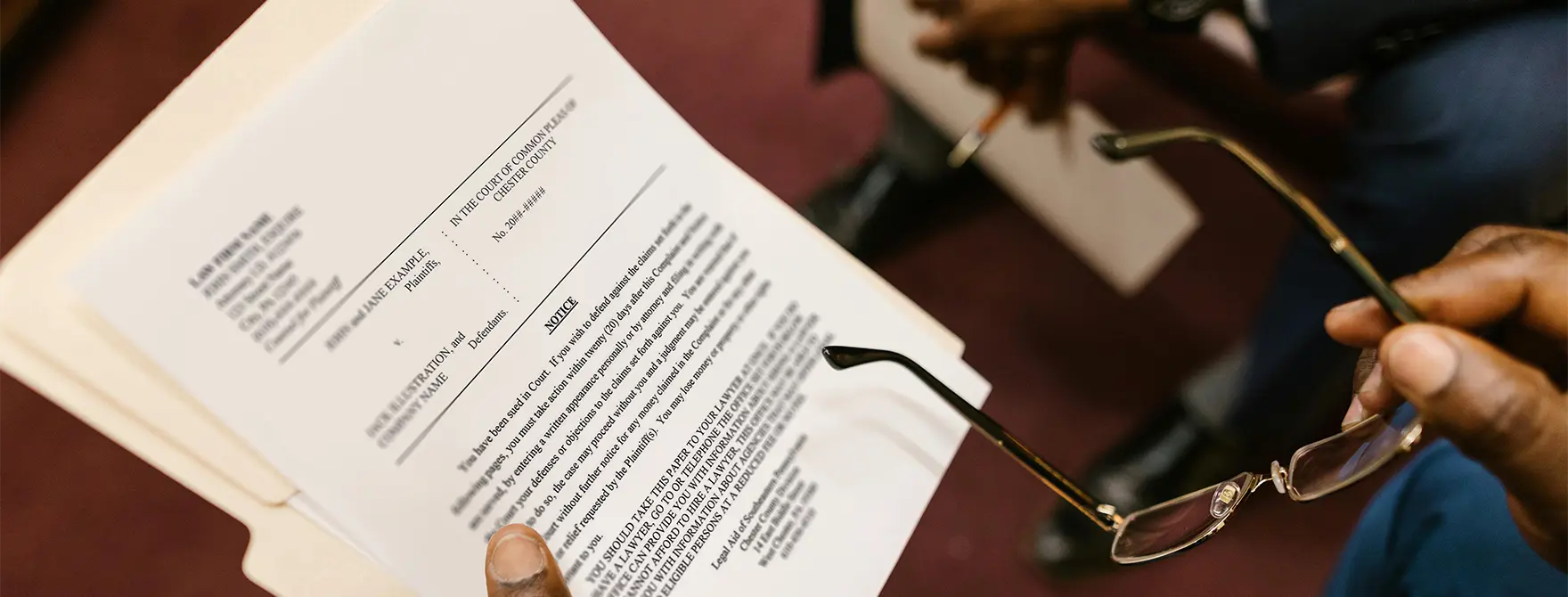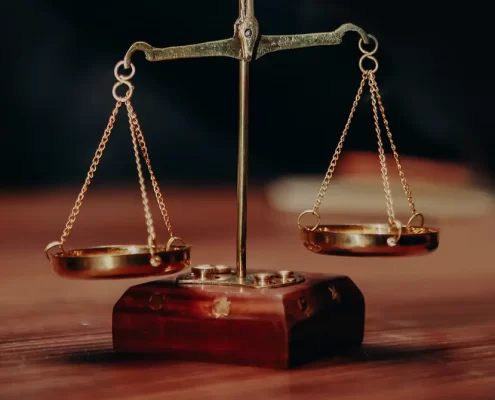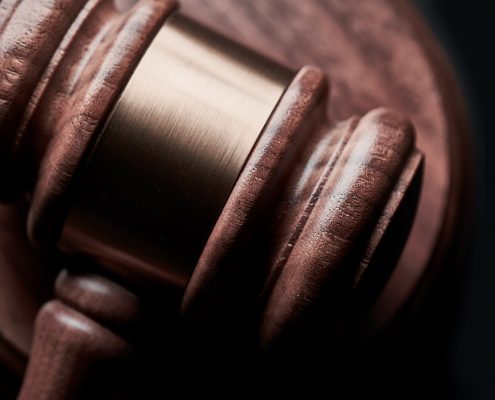
5 Tips for Social Media Use During a Lawsuit
Lawsuit, LitigationSocial media plays a huge role in our lives. From building community and staying connected to finding a job or your future spouse, social media is increasingly the lifeblood of modern society. Although Facebook, TikTok, Twitter, Instagram, Snapchat…

What to do when a Process Server Serves You with a Lawsuit
Civil Law, LawsuitWhat happens if a process server shows up at your house? In Pennsylvania, this is usually a sheriff. Sometimes, if you’re in federal court, it can be a private party who shows up and serves you with some paperwork. To watch a brief video by…

What do you do with a Notice to Defend?
Civil Law, LawsuitWhen you have been served with a lawsuit in Pennsylvania, one thing that you commonly see on the front page is something that is called a “Notice to Defend.” A Notice to Defend is a one or two page document directed toward the defendant…

Six Dos and Don'ts when Getting Sued
Civil Law, LawsuitKnock, knock! The Sheriff shows up at your door and hands you papers. “You’re being sued,” he quietly explains, and perhaps asks you to sign something noting you were served. As you close the door behind you, a number of thoughts may drift…
 https://cornerstonelaw.us/wp-content/uploads/2023/05/Bankruptcy-blog-header.webp
670
1760
Cornerstone Law
https://cornerstonelaw.us/wp-content/uploads/2017/06/cornerstone-law-black-300x109.png
Cornerstone Law2023-05-29 09:17:572023-08-15 11:10:13Is it too late to file for bankruptcy once I’ve been sued?
https://cornerstonelaw.us/wp-content/uploads/2023/05/Bankruptcy-blog-header.webp
670
1760
Cornerstone Law
https://cornerstonelaw.us/wp-content/uploads/2017/06/cornerstone-law-black-300x109.png
Cornerstone Law2023-05-29 09:17:572023-08-15 11:10:13Is it too late to file for bankruptcy once I’ve been sued?
Business litigation in Lehigh County
Business Law, Lawsuit, LitigationWhen it comes to running a business, every experienced entrepreneur knows that it’s only a matter of time before a great idea well-executed will meet with conflict. Whether it’s a competitor making false claims about you, a large customer…

Time, Place and Manner Restrictions on the First Amendment
First Amendment, Lawsuit, Updates
In previous posts, we have discussed the importance of the First Amendment. We have also discussed that speech is not always just speech — it can also be conduct. Today, we are going to talk about legitimate government restrictions on the…

Contract Cases in Federal Court
Federal Court, Lawsuit, Litigation
When your business is sued in federal court, it can be a strange and surprising experience. A common question that we receive from business owners is, “How can my business be sued in federal court over a contract? Isn’t federal court just…

Cornerstone Law Firm in the Greater Reading Merchandiser
Business Law, Landlord/Tenant, Lawsuit, Personal Injury, Property, Updates, Wills & Estates
Cornerstone Law Firm is honored to serve the Berks County, Pennsylvania and beyond. We're happy to solve your legal problems, even through the uncertainty and stress of the current coronavirus (COVID-19).
In this month's Greater Reading…

Representation in Federal Court
Federal Court, Lawsuit, Litigation
If you’ve been sued in the Federal District Court for the Eastern District of Pennsylvania, there are a number of questions you will need to confront quickly. These questions include whether you were properly sued in the Eastern District,…

Waiving Summons in Federal Court
Lawsuit, Litigation
When you have been sued in federal court, it is customary for the attorney who represents the plaintiff (the person suing you) to reach out to you by email or letter with a copy of a Waiver of Summons. An example of what this document looks…

Why You Shouldn’t Ignore a Writ of Summons
Lawsuit
If you’ve been served with a Writ of Summons in Schuylkill County, Pennsylvania or, in any other county in Pennsylvania for that matter, it’s extremely important that you do not ignore it. A Writ of Summons is the beginning of a lawsuit,…
